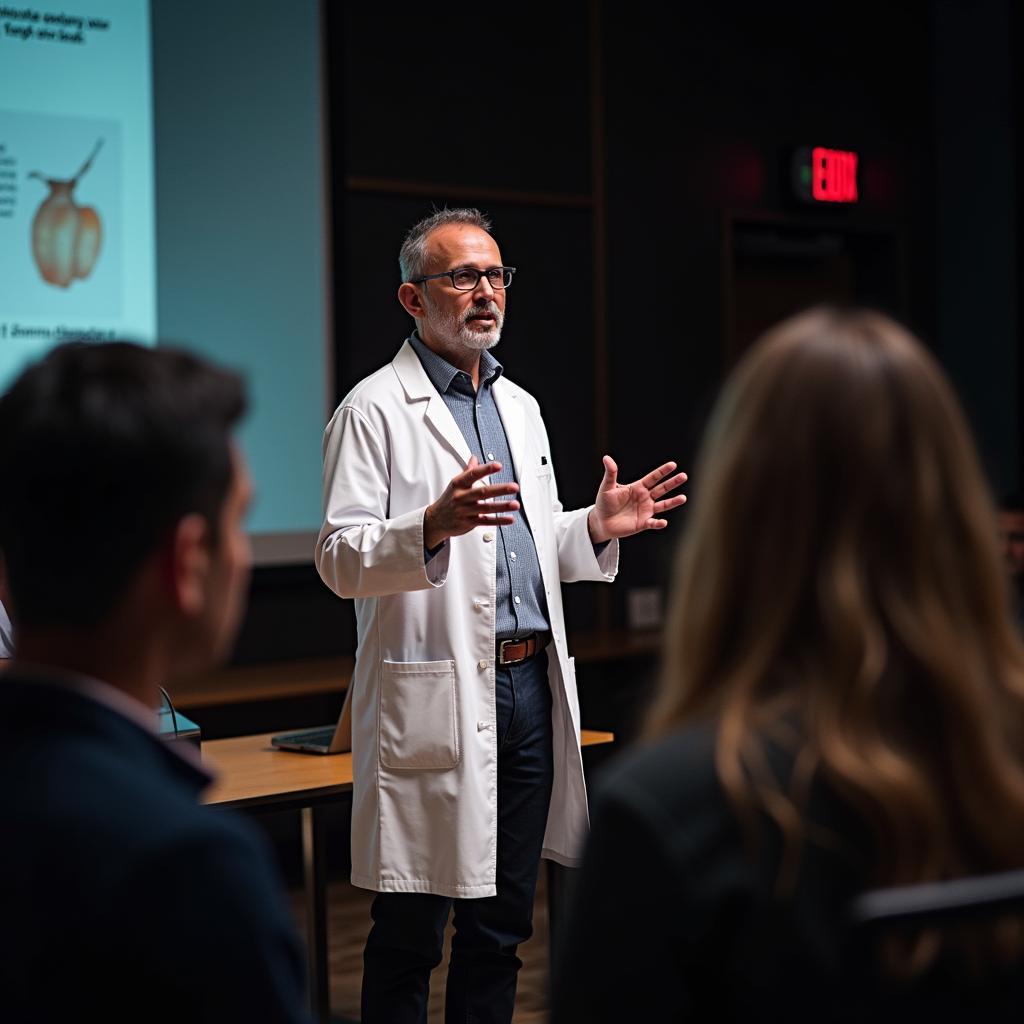The IELTS Speaking test assesses your ability to communicate effectively in English. It’s divided into three parts: Part 1 (Introduction and Interview), Part 2 (Long Turn), and Part 3 (Two-way Discussion). To excel, you need to demonstrate fluency, coherence, lexical resource, grammatical range, and pronunciation. Questions about describing a person who is very knowledgeable in their field are common, and preparing detailed, engaging responses can help you achieve a high band score.
Common Questions in Part 1: Introduction and Interview
IELTS Speaking Examiners often ask introductory questions to gauge your general comfort with English. Here are some typical questions along with a sample response:
Sample Question:
“Who is your favorite teacher and why?”
Sample Answer:
“My favorite teacher is Ms. Nguyen, my high school biology teacher. She has an uncanny ability to explain complex concepts in a way that is easily understandable, which sparked my interest in science.”
Part 2: Long Turn
Cue Card:
Describe a person who is very knowledgeable in their field. You should say:
- Who this person is
- What field this person is knowledgeable in
- How you know about this person
- And explain why you think this person is very knowledgeable

Sample Answer:
“I would like to talk about Professor John Smith, a renowned neuroscientist. I got to know about him through a lecture series on neuroscience on TED Talks. Professor Smith has published numerous papers on brain plasticity and has over 30 years of experience in research. He is extremely articulate, making complex subjects accessible to a wide audience. What really sets him apart is his dedication to furthering scientific knowledge and his ability to inspire students globally.”
Examiner’s Follow-Up Questions:
-
What impact has this person had on you?
Sample Answer: “Professor Smith’s work has inspired me to pursue a career in neuroscience. His passion and knowledge have given me a new perspective on how the brain functions and evolved my interest in scientific research.”
-
Do you think it is important to be knowledgeable in just one field or multiple fields?
Sample Answer: “I believe it is valuable to be knowledgeable in multiple fields as it allows for a more holistic understanding of various subjects and can lead to innovative breakthroughs when interdisciplinary approaches are taken.”
Part 3: Two-way Discussion
Discussion Prompt:
Examiners might ask abstract and complex questions that require analytical thinking and personal opinion.
Examiner’s Questions:
-
How can expertise in a field impact society?
Sample Answer: “An individual’s expertise can profoundly impact society by driving technological advancements and innovative solutions to problems. For instance, experts in renewable energy are crucial for developing sustainable practices that address climate change.”
-
Can being highly knowledgeable in one field contribute to success in other areas of life?
Sample Answer: “Absolutely. Being highly knowledgeable in one field often develops critical skills such as problem-solving, analytical thinking, and dedication, which are transferable to various areas of life, including leadership and personal growth.”
Vocabulary and Key Phrases for High Scores
Important Vocabulary:
- Renowned /rɪˈnaʊnd/: Widely known and esteemed.
- Articulate /ɑːˈtɪkjʊlɪt/: Able to express thoughts clearly.
- Holistic /həˈlɪstɪk/: Considering the whole rather than individual parts.
- Interdisciplinary /ˌɪntərˈdɪsəplɪnəri/: Involving two or more academic disciplines.
- Innovative /ˈɪnəveɪtɪv/: Featuring new methods; advanced and original.
Example Uses:
- “Professor Smith is a renowned neuroscientist known for his innovative research on brain plasticity.”
- “His ability to make complex ideas articulate and accessible is commendable.”
Expert Tips for High Scores
- Practice Fluency and Coherence: Speak naturally and use signposting phrases like “Firstly,” “Moreover,” and “In conclusion.”
- Expand Your Vocabulary: Use topic-specific vocabulary and avoid repetition.
- Show Grammatical Range: Use a mix of simple and complex sentences.
- Work on Pronunciation: Focus on stress, intonation, and clear articulation of words.
By following these strategies and practicing the suggested responses, you can significantly improve your chances of achieving a high score in the IELTS Speaking test.